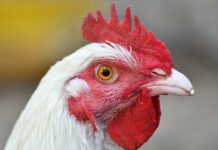COLUMBUS — At conventions and conferences everywhere, attendees slip a lanyard around their neck and clip on a plastic name badge holder. And in government and university offices nationwide, chances are visitors are walking on carpet.
If Ohio Sen. Karen Gillmor has her way, more of those badge holders worn in Ohio would be made out of corn, not petroleum. Same with the carpet.
Buy bio-based
Gillmor has introduced S.B. 131, which would give preferred purchasing considerations by all state agencies and state universities to designated bio-based products.
The state legislation is modeled after a federal procurement preference program coordinated by the USDA and established in the 2002 farm bill, called the BioPreferred program. The bill would give purchasing preference to bio-based products if the bio-based product is comparable in price, performance, and availability.
If the state bill is adopted, Ohio would use the existing list of designated bio-based items created, tested and maintained by the USDA.
The list includes everything from floor strippers to bedding. The current BioPreferred list includes 3,000 items, but an additional 10,000 new items should pass muster by Iowa State University’s testing program this summer.
Revenue neutral
Gillmor championed her bipartisan bill in a news conference June 19, saying the bill would help the state “go green,” while breathing new life into the economy.
“Why not spend the money we’re already spending, but spend it on our No. 1 industry here in Ohio,” Gillmor said.
“With no new revenue dollars, we can help our farmers, we can help small business, we can help manufacturing,” she said, adding that the state’s universities and students also benefit by leading the way for bio-based product research, some of which is currently being done by entities like the Ohio Bioproducts Innovation Center.
“I think it’s a win-win, building on the strengths Ohio already has,” the Tiffin Republican added.
Already in market
Gillmor was joined by Ross Youngs, CEO of the Marysville, Ohio-based Univenture company, which makes those bio-based name badge holders.
The bio-based products are already out there, Youngs said, and they “can compete with nonrenewable resources.”
“Building the awareness is critically important,” Youngs said, “which is what I believe this bill does.”
Univenture worked with Battelle and the Ohio Soybean Council in product research and development of at least one other bio-based product, a three-ring binder produced with a high content of soy additive, for example.
Boost needed
Hardin County soybean farmer Mark Watkins has watched the growing partnership between agriculture and the polymer industry with more than passing interest.
From his seat on the Ohio Soybean Association board, Watkins received updates on the technology breakthroughs in bioproducts and realized the need for more research — and more marketing.
“We’re right on the ground floor,” Watkins said during the news conference, “but it’s a challenge to bring them [bioproducts] to the market.”
“This investment is a long-term investment.”
Bio-based products are defined as commercial or industrial products, other than food or feed, composed of biological products, including renewable agricultural materials such as plant, animal, and marine or forestry materials.
Gillmor’s bill has been assigned to the Senate agriculture committee.











The USDA’s BioPreferred voluntary labeling program will help consumers identify biobased products easier, at the same time it will boost the marketing efforts of biobased product manufacturers and vendors. Information about this proposed label is found in the US Federal Register – http://edocket.access.gpo.gov/2009/E9-17610.htm